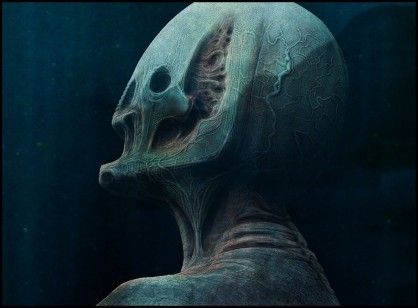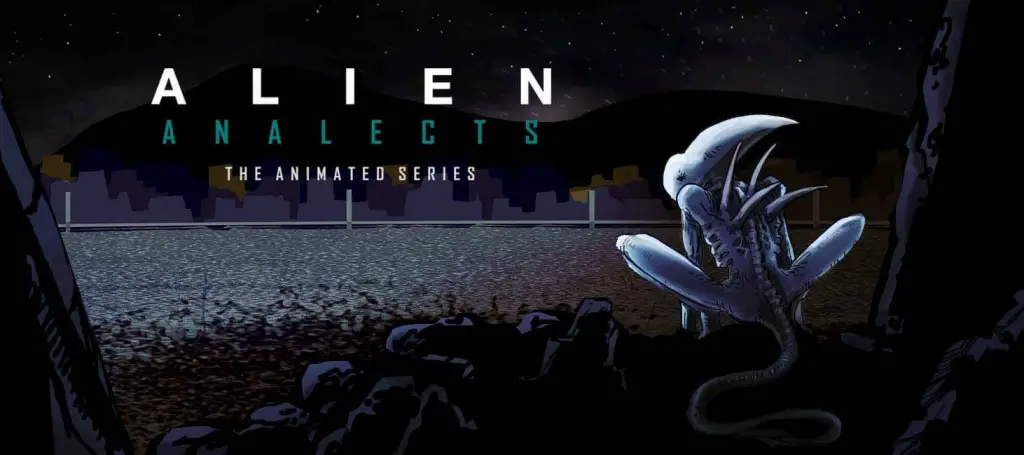nostromo001
MemberOvomorphJan-02-2013 6:35 AMBLANDCorporation,
the problem with Shaw's 'believe' line isn't that she has a hypothesis. They come and go, and as you've pointed out there are many cases in the past where a hypothesis was untenable at the time (because of, say, a lack of compelling evidence) but was later vindicated as accurate once the science had caught up. The principles of isotropy and homogeneity in cosmology, for instance, were put forward and declared 'principles' before we really had good reason to believe them (now, of course, we have good reason to believe them). Likewise, Darwin proposed natural selection as the explanation for complexity without having a good mechanism for it (he famously didn’t know about genes).
So the problem with Shaw's line isn't that she has a hypothesis awaiting evidence that either falsifies or fails to disconfirm it. The problem is that she, and for that matter the movie as a whole, characterizes the scientific enterprise as a matter of faith. She 'chooses to believe' her hypothesis. Presumably biologists 'choose to believe' natural selection and physicists 'choose to believe' the atomic theory. And they 'choose to believe' these things the way someone 'chooses to believe' in heaven.
Now it's true in a trivial sense that we 'choose to believe' by faith in some of the things we believe (eg, I have faith that the educated physicists working at CERN know what they are talking about when they talk about this stuff, so I'm going to assume the consensus among them re: atoms is more or less accurate). But that's only in a very mundane sense, and it's really only applicable to when we believe things that are outside our field of expertise. It's not the epistemological case that should and would be made by someone working in their field. For example, if you asked Einstein why he thought he could overturn centuries of Newtonian gravity, his answer probably wouldn't be 'because I choose to believe gravity works this way the way that some people choose to believe in heaven.' But that's exactly what Shaw says (and by 'exactly', I mean 'pretty much', really). Shaw has evidence that the movie implies is strongly suggestive of her hypothesis, yet she says it's faith that guides her.
I don't think this is an example of a knee-jerk reaction to the portrayal of a character who is both a scientist and religious (which is what I take you to mean earlier when you talked about knee-jerk reactions to anything less than pure scientism?). What it is is a reaction to a character that has almost no nuance at all. She has faith (in what? We don't know. We're to assume some kind of Christianity I guess). Her scientific hypotheses are somehow the product of that faith rather than suggested by evidence (that's the point of her repeating the 'choose to believe' line that her father used earlier to explain why he believes in heaven, right?). The other scientists believe in -isms like 'Darwinism', and the clash between Shaw's hypothesis and quote 'Darwinism' is ideological, not evidentiary.
Now, it's TOTALLY true that clashes between paradigms have a lot less to do with evidence and more to do with the resistance of an established ideology to change. But I don't think that's the case here, with this scene. I don’t think whoever wrote this scene has read up on, eg, Kuhn and paradigm shifts. Why? Because subscribers to the old paradigm and the new paradigm, on Kuhn’s account, don’t push their paradigms by faith! In fact, there aren’t any accounts I can think of in the philosophy of science or the philosophy of epistemology in which ‘belief in heaven’ and ‘belief in [hypothesis x]’ are driven by the same kind of epistemic criteria. Maxwell didn’t push his (now known to be false) theory of light because of faith; nor was his theory overturned because of it. The consensus surrounding continental drift, both for and against, didn’t change because of peoples’ faith. Likewise, the acceptance of common decent through natural selection.
We’ve had centuries of philosophers dedicating themselves to thinking about epistemology (What constitutes knowledge as distinct from mere beliefs? What constitutes ‘evidence’? What’s the difference between a theory and a model, and what role do they each play in our explanations and predictions?). We shouldn’t expect a layman audience to be hip to the various battles waged in various camps of the epistemology department. But we SHOULD expect a scientist 200 years in the future to at least be familiar with at least some of the epistemic grounds that underpin the philosophy of science, given that a) most scientists today seem to be very aware of those grounds and b) the literature is exploding thanks to the epistemic questions that the cutting edge of physics is raising (eg, ‘what constitutes a theory?’). We don't get any of that nuance in this scene.
Now, what I said above about there being virtually no epistemological accounts under which science proceeds by ‘faith’… that’s not exactly true, if you are very generous with what you’d call an ‘epistemological account’. I’ve noticed that one primary tactic of fundamentalist religious organizations (Answers in Genesis, for one) is to claim that creationists and naturalist both look at the same evidence but interpret it differently based on their pre-theoretical inclinations. In other words, the reason scientists and creationists differ in their explanations of the geological column is because they each hold ideological commitments that drive their interpretations; it’s all faith, and both approaches are equally legit, they’d have you believe.
And that’s not nuance with regards to epistemology. It’s just the tired old ‘science is a religion too!’ argument, which has about as un-nuanced a set a conceptions about faith, belief, knowledge and theory as one can have! Interestingly, these are also the kinds of circles one is most likely to encounter the term ‘Darwinism’, ‘Evolutionists’, and their derivatives. Creationists use these kinds of terms to cast the modern theory of evolution as some kind of ideological –ism. I would not expect a biologist in 2200 to call it that. I WOULD expect a shallow writer in 2012 to call it that, particularly if he’s setting up a ‘science is a religion too!’ idea.
As mentioned in other reviews, this movie pretends to explore Big Questions, but all it really does is ask some old, tired questions and never explores them. Science vs religion could be interesting. Man’s place in the universe, likewise. This movie doesn’t ask those questions. It just gives us a ‘scientist’ who believes whatever she believes because of faith; it gives us a biologist who subscribes to –isms instead of theories; it gives us ‘I have faith!’ and pretends that merely giving us that is itself an exploration of faith, meaning or whatever. It pays lip service to deep existential wonderings but doesn’t actually do any existential wondering.
So tl;dr – whoever wrote the scene thinks that science is some kind of faith, doesn't know much about the scientific and epistemic enterprises, and thinks that merely having a scientist character who is a believer is enough to count as ‘exploring the Big Questions of faith and science’.
















